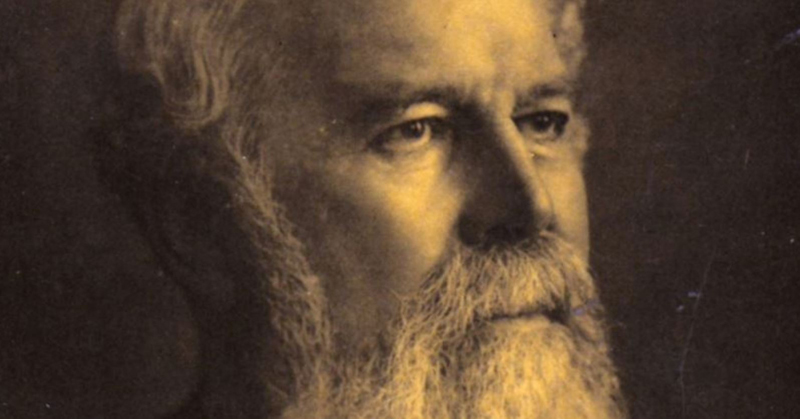by Charles Gardner —

Barriers are being broken down between Jew and Gentile. And, according to a first century Pharisee named Paul, that is a sure and certain sign of reconciliation.
As I mentioned over Christmas, the light of God’s faithful remnant is shining ever brighter against the backdrop of a darkening world.
Key evidence of this is the increasing acceptance of Jesus by Jews on the one hand alongside a growing understanding of Israel’s place in God’s purposes by Gentile Christians on the other.
Joseph Steinberg, a Messianic Jew and chief executive of the International Mission to Jewish people, has issued a direct challenge to the Church through the auspices of Evangelicals Now, a periodical that has not in recent years been particularly sympathetic to Israel and Jewish mission.

Steinberg was reviewing a TV program called Jews Don’t Count, fronted by Jewish comedian David Baddiel who makes the undeniable point that Jews seem to be the exception to the long list of minorities whose interests are constantly promoted by the liberal left.
Joseph naturally sympathizes with David’s provocative challenge, originally made in a book of the same title, but then turns on the church which, he says, is as prejudiced against Jewish people as the world while also failing to take antisemitism seriously.
He adds: “I find it painful to read the Apostle Paul’s words, admonishing the Gentile church to always make sure to share Jesus with Jewish people. Because, to be honest, I see very little care or concern given over to that responsibility by most churches.”
He further challenges: “It would seem Baddiel is right – Jews don’t count when we think about racism. And, unfortunately, in the church the same can be said – especially when it comes to Jewish evangelism,” pointing out that they now represent an unreached people group.
On the very positive side, however, great credit is due to the periodical concerned for publishing, in its January issue, both this review and several other major features highlighting the church’s failure in this regard and promising to put things right.
My own church has encouraged members to study a selection of Advent readings by 19th century Bishop J C Ryle¹ who, in discussing the angelic promise of Christ’s eternal reign (Luke 1:32f), writes: “The literal fulfillment of this part of the promise is yet to come. Israel has yet to be gathered. The Jews are yet to be restored to their own land and to look to Him, whom they once pierced, as their King and their God. Though the accomplishment of this prediction takes time, we may confidently wait for it. It shall surely come one day and not delay (Habakkuk 2:3).”

Remember that the good bishop was writing well before Jews began returning in significant numbers to the Holy Land, which eventually led to the rebirth of Israel as a modern state in 1948.
So, in this and many other ways, Christians are waking up to the truth of their vital link with Israel.
Back in the Land of the Bible, meanwhile, the new Israeli government is placing renewed emphasis on teaching Scripture in schools. And a recent report told of leading rabbis afraid to leave the country lest they miss Messiah’s coming!
Like many in the Christian world, they recognize the end-time signs. And it was in the approach to Christmas some years ago that a group of more than 25 prominent Orthodox rabbis issued a statement calling for a renewed look at Jesus, Christianity and the New Testament.
After nearly two millennia of mutual hostility, they are seeking “to do the will of our Father in heaven by accepting the hand offered to us by our Christian brothers and sisters”.
Paul’s famous statement about the barrier being broken at the cross was, after all, made in the context of Gentiles who were formerly excluded from citizenship with Israel (Ephesians 2:12) but who had now become “one new man” (verse 15) with God’s people.
I recognize that Jesus, and his divinity, is still a potential stumbling block. But is our Lord now perhaps knocking, not so much on the door of the Laodicean church (see Revelation 3:20), but also on the portals of the synagogue?
I am reminded of 19th century Moldovan merchant Joseph Rabinowitz who, while helping Jews emigrate to Israel to escape persecution, took a walk on the Mt of Olives where he saw Yeshua (Jesus) coming towards him, saying: “I am the one whom you seek; I am the solution to your problem.”
In the same way, a growing number of Jews today are finding that Jesus is the answer to their problems. An Orthodox Jew who travelled to South America after serving in the army found himself challenging God’s existence while on a hike.
He had such a powerful encounter with God as a result that the only way he could explain it to his friend was to write the word Yeshua (in Hebrew). And yet he didn’t know what it meant – until he clicked on a Facebook video and discovered that Yeshua was the promised Messiah. He is now an evangelist for Jews for Jesus.
As another new disciple put it, “I was challenged to read the New Testament Scriptures and now I believe that Jesus is Messiah.” Yet another “almost cried” when he was given the New Testament.
Jews for Jesus evangelist Julia Pascoe reveals that “there isn’t the same hostility from our people” as there was until quite recently.
Conversely, the Gentile world is becoming more aware of the Jewish roots of the Christian faith. Even the popular TV drama All Creatures Great and Small, based on the stories of vet James Herriot, has reflected this reality. Its Christmas show included war-time evacuee Eva, a young Jewish girl who introduced the Yorkshire farming community to Hanukkah while embracing Christmas at the same time. And, of course, the feasts coincided this year!
As Jews begin to recognize “the one they have pierced” (Zechariah 12:10), Gentiles are being urged: “Look to the rock from which you were hewn.” (Isaiah 51:1)
God is working his purpose out. Jesus came for both Jew and Gentile.
1 The Coming of the King, 10 Publishing



